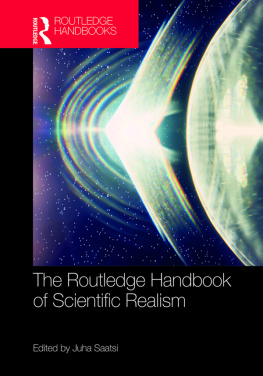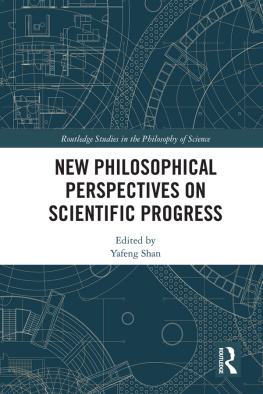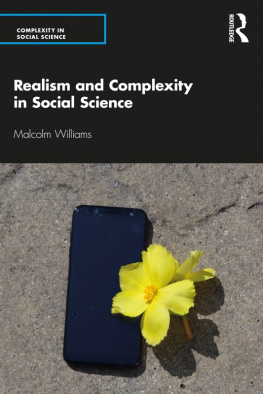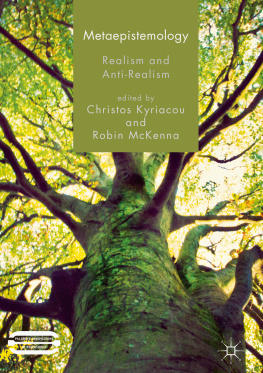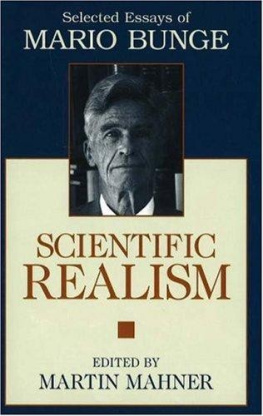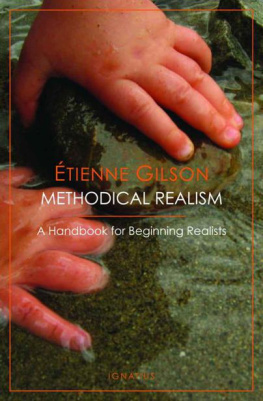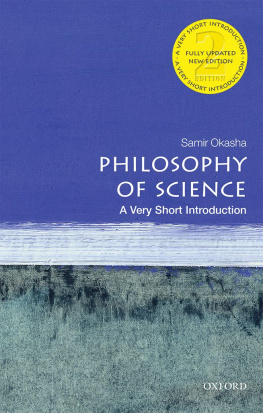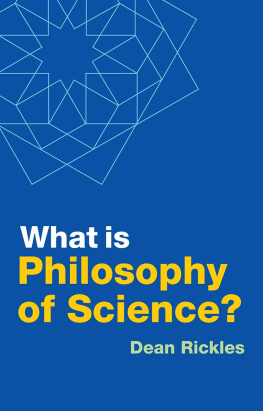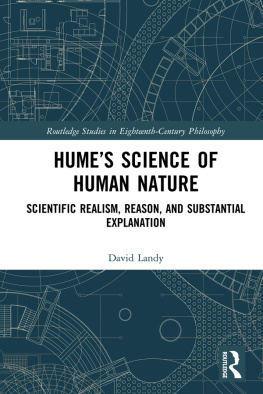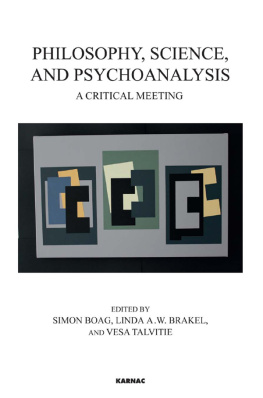First published 2018
by Routledge
2 Park Square, Milton Park, Abingdon, Oxon OX14 4RN
and by Routledge
711 Third Avenue, New York, NY 10017
Routledge is an imprint of the Taylor & Francis Group, an informa business
2018 selection and editorial matter, Juha Saatsi; individual chapters, the contributors
The right of Juha Saatsi to be identified as the author of the editorial material, and of the authors for their individual chapters, has been asserted in accordance with sections 77 and 78 of the Copyright, Designs and Patents Act 1988.
All rights reserved. No part of this book may be reprinted or reproduced or utilised in any form or by any electronic, mechanical, or other means, now known or hereafter invented, including photocopying and recording, or in any information storage or retrieval system, without permission in writing from the publishers.
Trademark notice: Product or corporate names may be trademarks or registered trademarks, and are used only for identification and explanation without intent to infringe.
British Library Cataloguing-in-Publication Data
A catalogue record for this book is available from the British Library
Library of Congress Cataloging-in-Publication Data
Names: Saatsi, Juha, editor.
Title: The Routledge handbook of scientific realism / edited by Juha Saatsi.
Other titles: Handbook of scientific realism
Description: New York : Routledge, 2017. | Series: Routledge handbooks in
philosophy | Includes bibliographical references and index.
Identifiers: LCCN 2017032031| ISBN 9781138888852 (hardback : alk. paper) |
ISBN 9780203712498 (e-book)
Subjects: LCSH: SciencePhilosophy. | Realism.
Classification: LCC Q175.32.R42 R68 2017 | DDC 501dc23
LC record available at https://lccn.loc.gov/2017032031
ISBN: 978-1-138-88885-2 (hbk)
ISBN: 978-0-203-71249-8 (ebk)
Typeset in Bembo
by Apex CoVantage, LLC
Jamin Asay is Assistant Professor of Philosophy at the University of Hong Kong. He works in metaphysics, philosophy of language, and philosophy of science, focusing on the topics of truth and truthmaking. He is the author of The Primitivist Theory of Truth (2013).
Feraz Azhar is a philosopher of cosmology at Trinity College, Cambridge, UK. He has a PhD in theoretical physics and will, from 2017, be at Harvard University.
Alexander Bird is Professor of Philosophy at the University of Bristol. He is the author of Philosophy of Science (2nd ed., 2005), Thomas Kuhn (2000), and Natures Metaphysics (2007). His research interests include Kuhn, naturalism, epistemology, and the metaphysics of science.
Otvio Bueno is Professor of Philosophy and Chair of the Philosophy Department at the University of Miami. He works in philosophy of science, philosophy of mathematics, philosophy of logic, metaphysics, and epistemology. His latest book is Applying Mathematics: Immersion, Inference, Interpretation (with Steven French, OUP, forthcoming).
Jeremy Butterfield is a Senior Research Fellow in philosophy of physics at Trinity College, Cambridge, UK.
Anjan Chakravartty is Professor of Philosophy and Director of the John J. Reilly Center for Science, Technology, and Values at the University of Notre Dame, and Editor in Chief of Studies in History and Philosophy of Science . He is the author of A Metaphysics for Scientific Realism : Knowing the Unobservable (2007) and Scientific Ontology : Integrating Naturalized Metaphysics and Voluntarist Epistemology (2017).
Hasok Chang is the Hans Rausing Professor of History and Philosophy of Science at the University of Cambridge. He received his degrees from Caltech and Stanford and has taught at University College London. He is the author of Is Water H2O? Evidence, Realism and Pluralism (2012) and Inventing Temperature: Measurement and Scientific Progress (2004). He is a co-founder of the Society for Philosophy of Science in Practice (SPSP) and the Committee for Integrated History and Philosophy of Science.
Richard Dawid started his academic life in theoretical physics and now is a Senior Lecturer for the philosophy of science at Stockholm University. He has worked on epistemic and ontic questions in fundamental physics and their relations to the general philosophy of science.
Matthias Egg teaches philosophy at the University of Bern, Switzerland. He is the author of Scientific Realism in Particle Physics: A Causal Approach .
Steven French is Professor of Philosophy of Science at the University of Leeds. He is Co-Editor in Chief of the British Journal for the Philosophy of Science and Editor in Chief of the Palgrave-Macmillan series New Directions in Philosophy of Science. His most recent book is The Structure of the World: Metaphysics and Representation (2014), and his next one is Applying Mathematics: Immersion, Inference, Interpretation , with Otvio Bueno.
Leah Henderson is Assistant Professor and Rosalind Franklin Fellow at the University of Groningen. She has a DPhil in physics from Oxford University and a PhD in philosophy from the Massachusetts Institute of Technology. She works on a variety of topics in philosophy of science and philosophy of physics.
Harold Kincaid is Professor of Economics at the University of Cape Town. Early books were Philosophical Foundations of the Social Sciences (Cambridge 1996) and Individualism and the Unity of Science (Rowman and Littlefield 1997). He is the editor of the Oxford Handbook of the Philosophy of Social Science (2013) and co-editor of Scientific Metaphysics (Oxford 2013), What Is Addiction? (MIT 2010), Distributed Cognition and the Will (MIT 2007), Toward a Sociological Imagination (University Press, 2002), The Oxford Handbook of the Philosophy of Economics (Oxford 2009), Classifying Psychopathology (MIT 2014), Establishing Medical Reality , (Springer, 2008), Value Free Science (Oxford 2007), The Routledge Companion to the Philosophy of Medicine (2017), and numerous journal articles and book chapters on the philosophy of science and social science. In addition to his philosophy of science work, Kincaid is also involved in multiple projects in experimental behavioral economics focusing primarily on risk and time attitude elicitation and addiction.
Martin Kusch is Professor for Philosophy of Science and Epistemology at the University of Vienna. He is currently Principal Investigator of ERC Advanced Grant 339382 (The Emergence of Relativism, 20142019) and working on two books relating to this topic.
Mary Leng is Senior Lecturer in Philosophy at the University of York. She works on the philosophy of mathematics and science and more broadly on post-Quinean ontology. Her most recent research has focussed on parallels between some debates in the philosophy of mathematics and in metaethics. Her book Mathematics and Reality (2010) defends a fictionalist approach to mathematics.
Arnon Levy is Senior Lecturer in philosophy at the Hebrew University of Jerusalem. His research engages with a range of topics in the philosophy of science and biology, with a special focus on the role of models and idealization. For further information, please visit www.arnonlevy.org.
Michela Massimi is Professor of Philosophy of Science at the University of Edinburgh. She works in philosophy of science and in particular on the history and philosophy of modern physics. She is currently the PI on a five-year ERC Consolidator grant dedicated to perspectival realism.
Ali Mirza is a doctoral student in the Department of the History & Philosophy of Science & Medicine at Indiana University, Bloomington. His research focuses on philosophical and historical dimensions of evolutionary theory especially as related to the field of paleontology and with an emphasis on organism-environment interactions over geological timescales.
Next page
